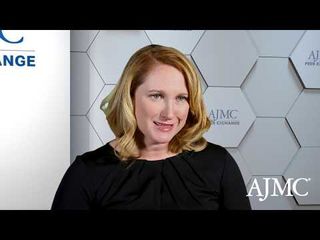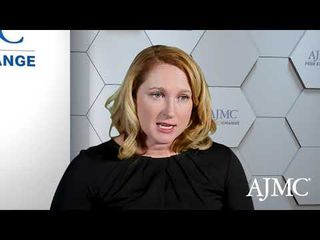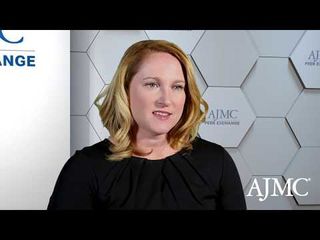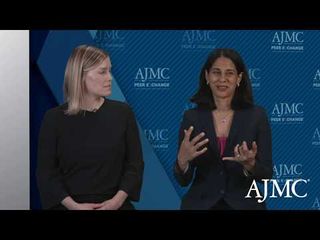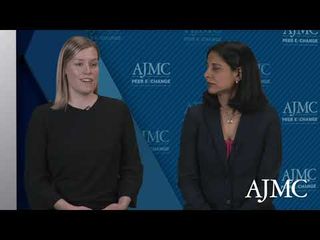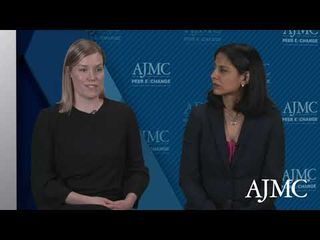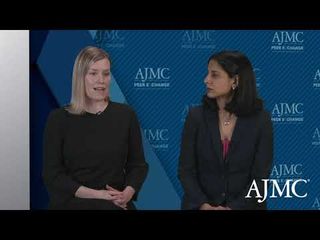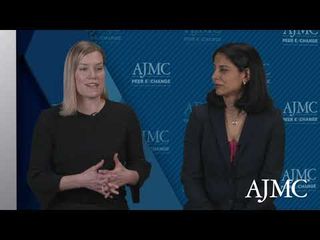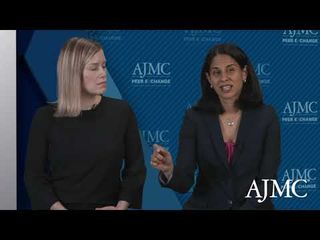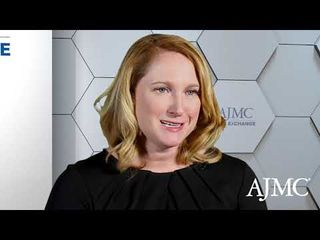
Oncology
Latest News
Latest Videos

More News

Former Tennessee US senator, heart and lung transplant surgeon, and healthcare entrepreneur brings dynamic expertise to the OneOncology national network.

Recap of the November 7 meeting of The American Journal of Managed Care®’s The Institute for Value-Based Medicine®. The dinner discussion, “Advancing Quality in Oncology Care” was held in Seattle, Washington.

The American Journal of Managed Care® sat down with Barbara McAneny, MD, president of the American Medical Association (AMA), to discuss how the AMA is working to "help create the healthcare system of the future."

In this article, we use data from our FAIR Health database of over 27 billion privately billed healthcare claims to identify the cancer diagnosis categories with the highest percentage of claim lines among all cancer diagnosis categories.
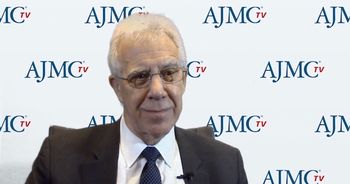
Improvements in treatments have led to less toxicities and better quality of life for patients with breast cancer, said Lawrence N. Shulman, MD, director of the Center for Global Cancer Medicine at the Abramson Cancer Center, and professor of Medicine at the Hospital of the University of Pennsylvania.

Joseph Alvarnas, MD, discusses the history of cancer care and what the future might look like in the space.

Evidence-Based OncologyTM sat down with Andrew W. Lo, PhD, to discuss his proposals to increase investment in medical innovation and utilization by giving investors more ways to support both research organizations and individual patients.

John B. Kisiel, MD, and Philip Parks, MD, MPH, provide an update on the future of cancer screenings and explain how improved treatment regimens offer the potential to reduce the cancer-related healthcare cost burden.

Informing patients about what to look for with neutropenia can help keep them out of the emergency department (ED) so they can be treated in the clinic, instead, said Beth Wittmer, RN, OCN, manager of care management at Florida Cancer Specialists and Research Institute.

Years before the Oncology Care Model (OCM) was implemented, Northwest Medical Specialties started preparing by making changes to the personnel in the practice, explained Sibel Blau, MD, medical oncologist at Northwest Medical Specialties, PLLC.

There is a lot of disagreement, even within the neuroendocrine tumor (NET) circles, that there are biomarkers that predict outcomes and some that may even predict responses to therapy, explained Thorvardur Halfdanarson, MD, associate professor of medicine and consultant in medical oncology, Mayo Clinic.

New reports from the CDC have highlighted troubling increasing trends in suicides and drug overdose rates as life expectancy in the United States declined.

A study published this week suggests that some anticancer treatments speed up the biological aging process, and this aging effect could be linked to the cognitive decline experienced by patients undergoing cancer treatment.

Every week, The American Journal of Managed Care® recaps the top managed care news of the week, and you can now listen to it on our podcast, Managed Care Cast.

This week, the top managed care news included HHS Secretary Alex Azar hinting that the government may get more involved in addressing social needs impacting health; work rules in Arkansas cost thousands their Medicaid coverage; research finds a shorter course of hepatitis C treatment may be just as effective as the full course of treatment.

As patients start chemotherapy to treat their cancer, they are educated on the side effects, particularly neutropenia, said Beth Wittmer, RN, OCN, manager of care management at Florida Cancer Specialists and Research Institute.

Thorvardur Halfdanarson, MD, associate professor of medicine and consultant in medical oncology, Mayo Clinic, outlines the biggest management challenges in neuroendocrine tumors (NETs).

In the keynote address at Patient-Centered Oncology Care® 2018, Barbara McAneny, MD, a New Mexico oncologist/hematologist and the current president of the American Medical Association (AMA), shared her diagnosis for the current crisis in US healthcare, as well as a prescription—a new real-time oncology payment model led by physicians.

Since chimeric antigen receptor (CAR) T-cell therapy is still in early development there are benefits and risks that eligible patients will have to weigh, including the durable response against the limited amount of data and toxic side effects, said Brian Koffman, MDCM, DCFP, DABFM, MS Ed, medical director, CLL Society.

The FDA announced Friday it expanded the approved use of brentuximab vedotin (Adcetris) in combination with chemotherapy for adult patients with certain types of peripheral T-cell lymphoma, using a new review process designed to increase efficiency.

The addition of nivolumab to azacitidine led to significantly better overall response rate and overall survival compared with previous hypomethylating agent-based regimens in patients with relapsed acute myeloid leukemia (AML), according to the results of a recent phase 2 study.

At a session of The American Journal of Managed Care®'s Patient-Centered Oncology Care® 2018 meeting, held November 16 in Philadelphia, panelists shared their views on the future of oncology value-based payment models and how they as payers and providers can help advance these models.

As practices shift to value-based care, they need truly coordinated care teams that discuss high-risk patients and identify ways to deliver care to them, said Marcus Neubauer, MD, chief medical officer, US Oncology.

CMS' announcement of a new mandatory oncology bundled payment model wasn't a surprise. It reinforces CMS' continued commitment to creating innovative ways of transforming care.

Former chief exeutive officer of the West Cancer Center brings over 3 decades of technology, operations, and care advancement to the OneOncology National Network.
